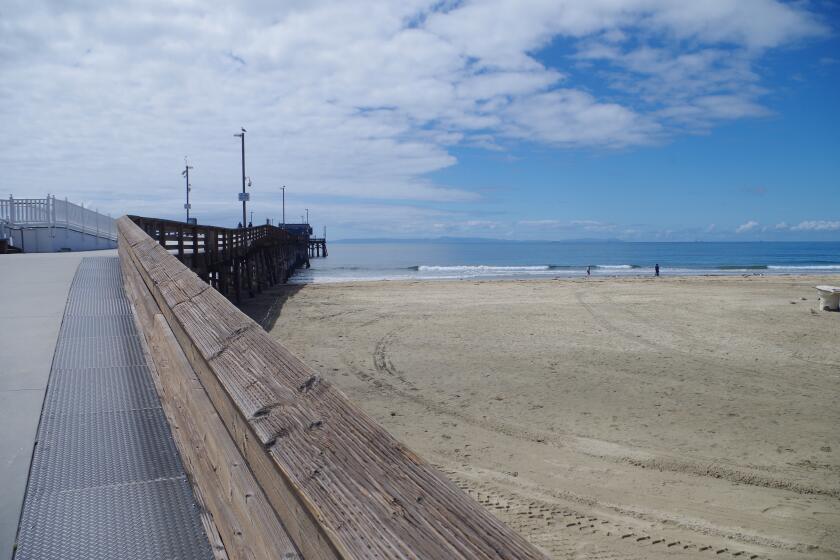City Council needs to review priorities
- Share via
The nearly 20-year-old Costa Mesa Human Relations Committee ended its
frequently controversial run last week in, not surprisingly,
controversial fashion. A divided City Council, on a 3 to 2 vote --
with the conservative men, Mayor Allan Mansoor and Councilmen Eric
Bever and Gary Monahan, on one side, and the liberal women,
Councilwomen Linda Dixon and Katrina Foley, on the other -- decided
to disband the group, which was created to “encourage the education
about and communication between the various cultures residing in
Costa Mesa.” A month earlier, the council had decided to strip the
committee of its $3,700-per-year stipend.
No one at the council meeting spoke out in favor of abolishing the
committee, and group members asked the council to keep the committee
going.
Speaking for the others, Dennis Short told the council, “We can
make a difference if you’ll let us continue our work, and we would be
glad to continue even if we are not funded.”
So why did the council vote to disband the committee?
Mansoor’s explanation was simple, in keeping with the political
philosophy he has espoused since running for office and much the same
as when the council decided in the spring to shut down the Costa Mesa
Job Center: “I simply don’t believe this is a function of government.
I believe it is best handled through private organizations, working
through private means.”
It is a coincidence, perhaps, that Mansoor’s first taste of city
government came as a member of the committee, as did his first public
lambasting, back in 2002, by fellow members who accused him of
writing a website posting with comments that were offensive to
immigrants, Latinos and gays.
Coincidence or not, abolishing this committee seems unwise in a
community as diverse as Costa Mesa. Some 30% of the population is
Latino, and as has been clear during debate about the Job Center and
when questions arose about the administration’s treatment of Latino
students at TeWinkle Middle School, miscommunication can be a
problem.
Why not maintain a place to work out such issues, especially at
little or no cost?
Mansoor’s statement, which regularly has been echoed in deed if
not word by Bever and Monahan, is the answer, and it represents the
new driving force of Costa Mesa city government. Gone are the days
when the City Council was willing, if not happy, to fund art
projects, community gardens, possibly even skate parks. Its focus is
narrow now, too narrow.
Local government should strive to make the community a better
place to live -- in myriad, not limited, ways. It should encourage
artists, should provide opportunities for people to engage in
discussions about the city’s problems and future, should build parks
and protect open spaces. It should help run senior centers and offer
recreation for youth and adults, alike. It should do more than just
fill potholes, regulate building codes and provide police and fire
services, although those tasks are important, as well. But its
mandate should be bigger.
The Costa Mesa council has had a wider view in the past. It
sponsored the city’s 50th anniversary celebration (much as Newport
Beach leaders are doing with their upcoming centennial celebration).
It has spent money on veterans memorials and historic preservation.
It has supported the development of the Performing Arts Center by
offering million-dollar waivers.
Such decisions seem far in the past.
That the council has dramatically shifted priorities is most clear
from the fact the human relations committee members were willing to
continue meeting even without their yearly stipend. Certainly,
trimming $72 a week from the city’s budget -- far less than what
council members make -- can’t be seen as a cost-cutting move. Beyond
opening a City Hall room, the city would have had little commitment
to and responsibility for the committee. But even that is too much
for the council.
Sadly, it is far too little for the community.
All the latest on Orange County from Orange County.
Get our free TimesOC newsletter.
You may occasionally receive promotional content from the Daily Pilot.



